A Craft of Beauty and Utility
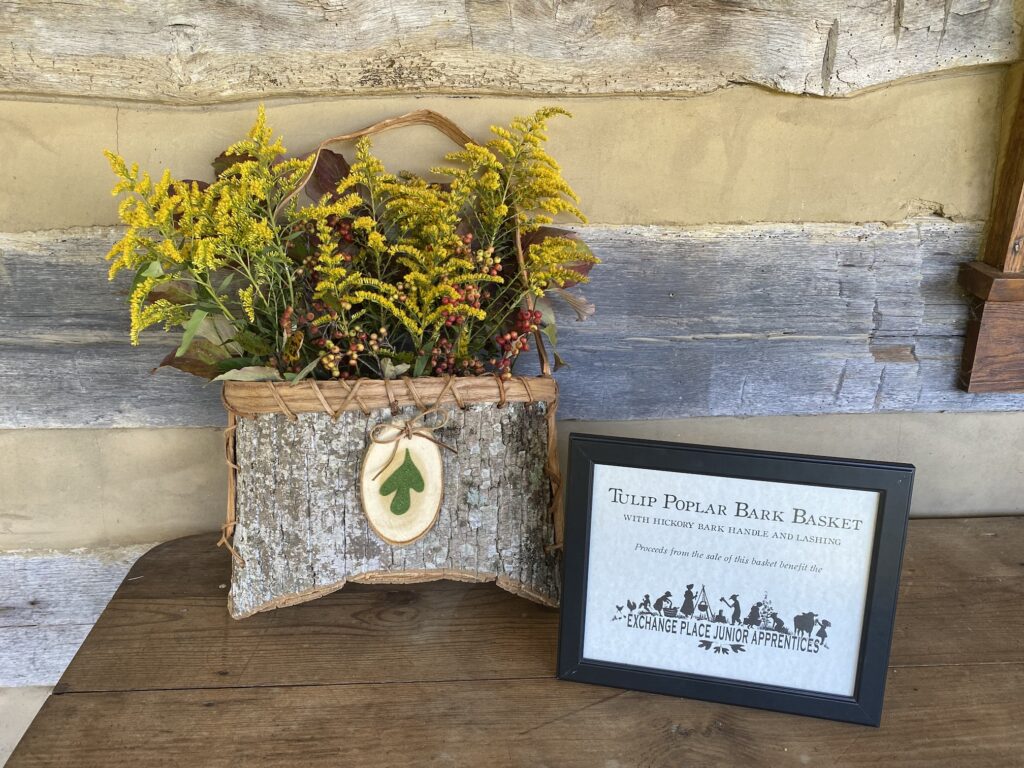
It’s blackberry season in East Tennessee, with these delicious native fruits ripening in fallow fields and along roadsides and tempting humans and wildlife alike. If you decide to venture out into the heat and briars to harvest these berries for jam or a homemade cobbler, you might carry with you an empty yogurt tub or milk jug in which to collect your berries. Our ancestors, who picked berries by the gallons for preserving, would have had no such plastic “conveniences.” Instead, they might have crafted their own containers out of a common and familiar tree: the tulip poplar.
Baskets made of tulip poplar bark have been used for centuries in the Appalachian mountains, first by the Native Americans and then by the European settlers. As with so many human innovations, the bark basket likely arose from the combination of necessity and keen observation. From May to July, when sap flow is heavy, the bark of the tulip poplar tree peels off easily. This also happens to be the time of year when many wild berries are in season. Someone stumbling upon a patch of huckleberries or blackberries could quickly cut off a piece of poplar bark and fold it into a handy container for the berries. A more permanent basket—or bucket—could be made ahead of time and held together with leather laces or lashings made from hickory or white oak wood. The craft combines handiwork and a connection to seasonal cycles and stands as a perfect example of the old adage: “Necessity is the mother of invention.”
Every June, the Exchange Place Junior Apprentices keep this craft alive by making dozens of baskets, buckets, and vases from freshly cut tulip poplar and hickory trees. Though modern tools are used, the process still takes patience and diligence. And because much of the work must be done while the wood is fresh or “green,” time must be used wisely.
The JAs are presented with a variety of tulip poplar logs of varying length and diameter, and they must choose one that “speaks” to them. They then score the bark down the side of the log and slowly peel it off. Most agree that working their fingers between the wet, slimy bark and sapwood is a satisfying tactile experience. Once the bark pops off, it is ready to form into shape and lash together. While leather lacing, jute twine, or even strips of cloth can be used to lash the baskets together, the JAs also use hickory bark as was done traditionally in this region. Making the hickory lashing is often the most time consuming part of the process. It begins by stripping the outer bark from a 5-foot long hickory log with a draw knife, then slicing narrow sections of the inner bark and peeling them one by one from the log. These long strips must then again be split cross-wise and cut into ¼-inch wide lashing.
The JAs’ creativity shines through with their choice of handles, lashing design, and ornamentation. The final products are versatile pieces of folk art that can be used for their original purpose (gathering berries) or other purposes such as mail holders or flower vases.
The hard work done in June pays off in September and December when the JAs sell their bark creations at Exchange Place’s annual Folk Arts Festival and Christmas in the Country events. Filled with wildflowers in the fall and fresh greenery in the winter, these baskets provide attractive seasonal decor and nearly always sell out. The buyers not only receive a beautiful piece of Appalachian history, but they also support the Junior Apprentice program and help these young historians continue to learn heritage crafts and share them with the community.
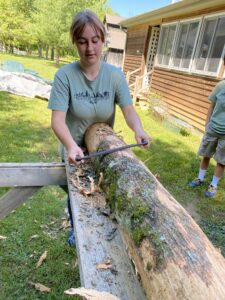
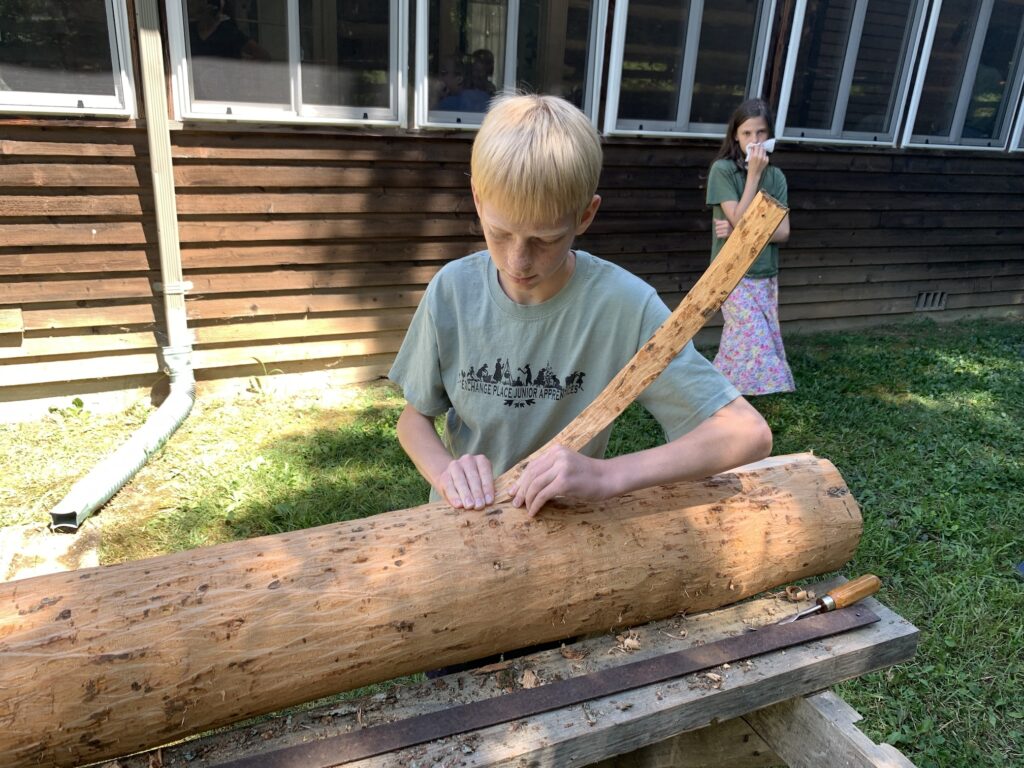
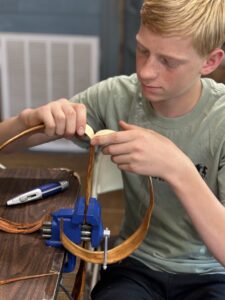
Preparing the hickory bark:
(1) Stripping the outer cork layer
(2) Peeling strips of bark from the log
(3) Splitting the bark in two pieces
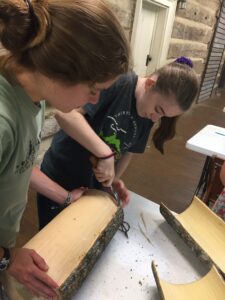
Peeling the bark from a poplar log
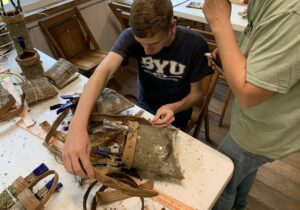
Crafting a basket
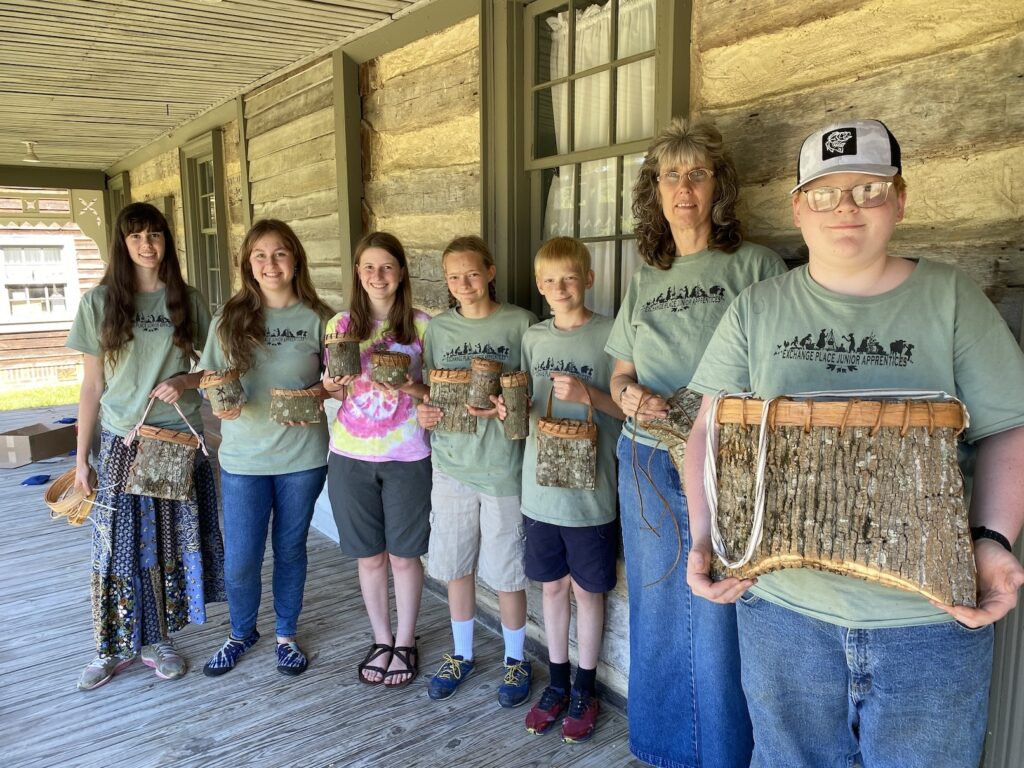
Displaying finished baskets
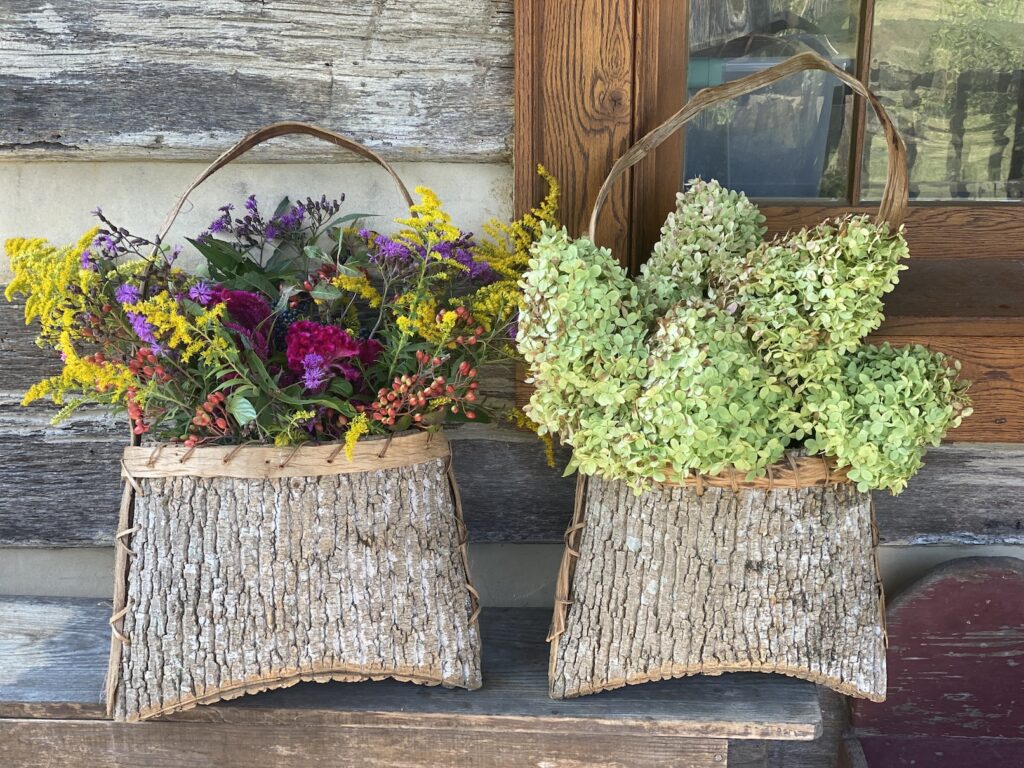
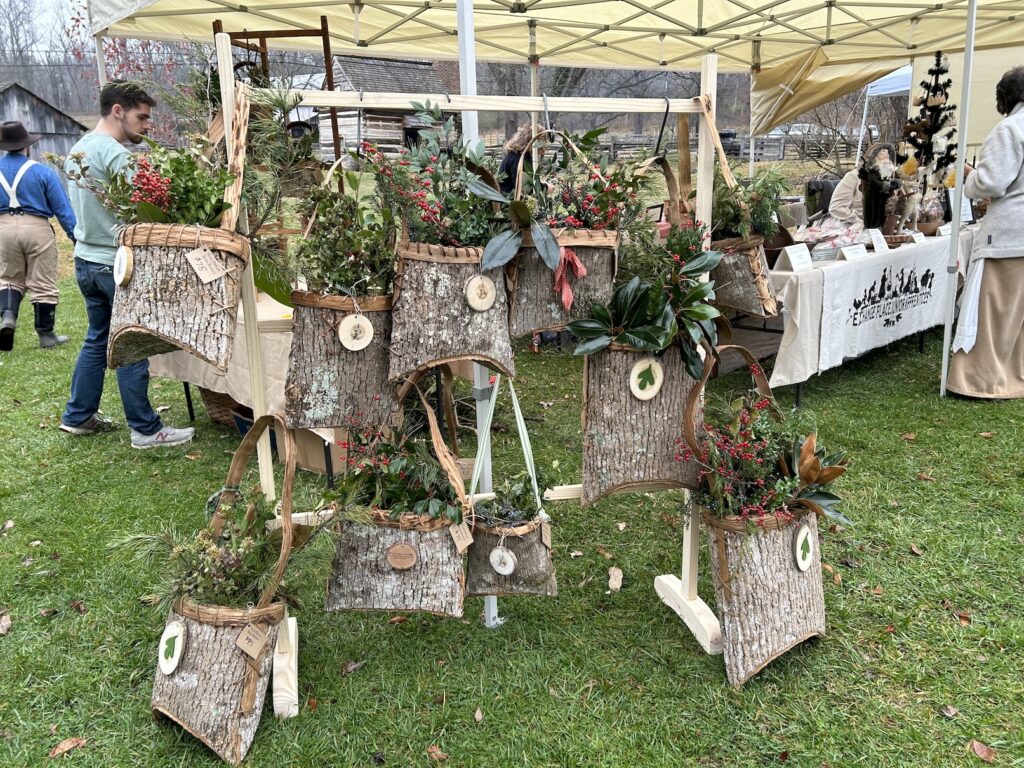
Baskets filled with autumn flowers and Christmas greenery
The mission of Exchange Place Living History Farm is to preserve and interpret the heritage of mid-19th century farm life in Northeast Tennessee. A private, non-profit organization, Exchange Place is maintained and operated primarily by volunteers and is supported by donations, fundraisers, memberships, and grants.

Exchange Place
4812 Orebank Rd,
Kingsport, TN 37664
423-288-6071